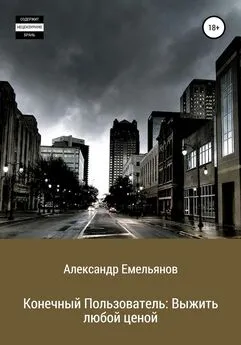Пользователь - o 3b3e7475144cf77c
- Название:o 3b3e7475144cf77c
- Автор:
- Жанр:
- Издательство:неизвестно
- Год:неизвестен
- ISBN:нет данных
- Рейтинг:
- Избранное:Добавить в избранное
-
Отзывы:
-
Ваша оценка:
Пользователь - o 3b3e7475144cf77c краткое содержание
o 3b3e7475144cf77c - читать онлайн бесплатно полную версию (весь текст целиком)
Интервал:
Закладка:
great building was gutted, and the government was charging that it had been deliberately fired
by emissaries of the Red International.
All four of the young people were familiar with that elaborate specimen of the Bismarck style
of architecture, and could picture the scenes, both there and elsewhere in the city. "It is a
frame-up," said Bess. "Communists are not terrorists." Lanny agreed with her, and Irma,
whatever she thought, kept it to herself. It was inevitable that every Communist would call it a
plot, and every Nazi would be equally certain of the opposite.
"Really, it is too obvious!" argued Hansi. "The elections less than six days away, and those
scoundrels desperate for some means of discrediting us!"
"The workers will not be fooled!" insisted Bess. "Our party is monolithic."
Lanny thought: "The old phonograph record!" But he said: "It's a terrible thing, as Papa
says. They will be raiding Communist headquarters all over Germany tonight. Be glad that you
have a good alibi."
But neither of the musicians smiled at this idea. In their souls they were taking the blows
which they knew must be falling upon their party comrades.
XI
What happened in the Reichstag building on that night of February 27 would be a subject of
controversy inside and outside of Germany for years to come; but there could be no doubt
about what happened elsewhere. Even while the four young people were talking in Paris, the
leader of the Berlin S.A., Count Helldorf, was giving orders for the arrest of prominent
Communists and Socialists.
The list of victims had been prepared in advance, and warrants, each with a photograph of
the victim in question. The Count knew that the Marxists were the criminals, he said; and
Goring announced that the demented Dutchman who was found in the building with matches
and fire-lighters had a Communist party membership card on him. The statement turned out
to be untrue, but it served for the moment.
Next day Hitler persuaded Hindenburg to sign a decree "for the safeguarding of the state
from the Communist menace," and after that the Nazis had everything their own way. The
prisons were filled with suspects, and the setting up of concentration camps began with a
rush. The Prussian government, of which Goring was the head, issued a statement concerning
the documents found in the raid on Karl Liebknecht Haus three days before the fire. The
Communists had been plotting to burn down public buildings throughout Germany, and to
start civil war and revolution on the Russian model; looting had been planned to begin right
after the fire and terrorist acts were to be committed against persons and property. The
publication of these documents was promised, but no one ever saw them, and the story was
dropped as soon as it had served its purpose—which was to justify the abolishing of civil
liberties throughout what had been the German Republic.
XII
As the evidence began to filter into the newspapers of Britain and France, the young Reds
and Pinks spent many an hour trying to make up their minds about one of the great "frame-
ups" of history. What brain had conceived it? What hand had carried it out? For the former
role their suspicions centered upon a German World War aviator who had fled to Sweden,
where he had become a dope addict and had been in a psychopathic institution. Hermann
Goring was a great hulk of a man, absurdly vain, with a fondness for gaudy uniforms which
was to make him the butt of Berlin wits; he was also a man of immense energy, brutal and
unscrupulous, the perfect type of those freebooters who had ravaged the borders of the German
empire in medieval times, had given themselves titles, and now had huge white marble statues of
themselves in the Siegesallee, known to the Berlin wits as "the Cemetery of Art."
Hermann Goring had got his titles: Minister without Portfolio, Federal Commissioner for Air
Transport, Prussian Minister of the Interior. They carried the same grants of power as in the
old free-booting days, but unfortunately they were subject to elections; on the following
Sunday the proletariat might go to the polls and strip Hermann of his glories—and this would
be extremely annoying to a man of aristocratic tastes, a friend of the former Crown Prince and
of Thyssen. As it happened, the man of action was in position to act, for his official residence
was connected with the Reichstag building by a long underground passage; also he had at his
command a well-trained army, eager to execute any command he might give. What did a
building amount to, in comparison with the future of the.N.S.D.A.P.?
The man whom the Nazis were finally to convict of the crime was a feeble-minded Dutchman
who had been expelled from the Communist party of that country and had been a tramp all
over Europe. The police maintained that at his original examination he had told a detailed
story of setting fire to the curtains of the restaurant with matches and fire-lighters. But the
restaurant wasn't the only room that burned; there had been a heavy explosion in the session
chamber, and that vast place had become a mass of flames and explosive gases. The head of
the Berlin fire department had observed trains of gasoline on the floors of the building.
Immediately after the fire he announced that the police had carted away a truck-load of
unburned incendiary materials from the scene of the fire; and immediately after making this
announcement he was dismissed from his post.
Such were the details which the young radicals abroad put together and published in their
papers. But the papers which might have spread such news in Germany had all been
suppressed; their editors were in prison and many were being subjected to cruel tortures. A
sickening thing to know that your comrades, idealists whom you had trusted and followed,
were being pounded with rubber hose, danced upon with spiked boots, having their kidneys
kicked loose and their testicles crushed. Still more terrible to know that civil rights were being
murdered in one of the world's most highly developed nations; that the homeland of Goethe
and Bach was in the hands of men who were capable of planning and perpetrating such
atrocities.
XIII
The fire had the intended effect of throwing all Germany into a panic of fear. Not merely the
Nazis, but Papen and Hugenberg were denouncing the Red conspirators over the radio. All
the new techniques of propaganda were set at work to convince the voters that the Fatherland
stood in deadly peril of a Communist revolution. Friday was proclaimed the "Day of the
Awakening Nation." The Nazis marched with torchlights, and on the mountain-tops and on
high towers in the cities great bonfires burned—fires of liberation, they were called. "O Lord,
make us free!" prayed Hitler over the radio, and loud-speakers spread his words in every
market-square in every town.
On Sunday the people voted, and the Nazi vote increased from nearly twelve million to more
than seventeen million. But the Communists lost only about a million, and the Socialists
practically none. The Catholics actually gained, in spite of all the suppressions; so it appeared
that the German people were not so easy to stampede after all. The Nazis still didn't have a
majority of the Reichstag deputies, so they couldn't form a government without the support
and approval of the aristocrats. What was going to come out of that?
The answer was that Adi Hitler was going to have his way. He was going right on, day after
day, pushing to his goal, and nobody was going to stop him. Objections would be raised in the
Cabinet, and he would do what he had done in party conferences—argue, storm, plead,
denounce, and threaten. He would make it impossible for anyone else to be heard, raise such a
disturbance as could not be withstood, prove that he could outlast any opposition, that his
frenzy was uncontrollable, his will irrepressible. But behind this seeming madness would be a
watchful eye and a shrewd, calculating brain. Adi would know exactly what he was doing and
how far he could go; if the opposition became too strong, he would give way, he would make
promises—and then next day it would be discovered that his followers were going right ahead
doing what he wanted done, and he would be saying that he couldn't control them. If it was
something serious, like the Reichstag fire, he would know nothing about it, he would be
completely taken aback, astounded, horrified; but it would be too late—the building would be
burned, the victim would be dead, the die would be cast.
For more than a decade he had been training his followers to these tactics. They must be a
band of desperadoes, stopping at nothing to get their way. Nothing on earth or in heaven was
sacred except their cause; nothing was wrong that helped their cause and nothing was right
that delayed it for a single hour. Individually and collectively they must be the most energetic
and capable of criminals, also the most shameless and determined liars. They must be able to
say anything, with the most bland and innocent expression, and if they were caught they
must admit nothing, but turn the charge against the other fellow; he was the liar, he was the
crook, he alone was capable of every wrongdoing. Adolf Hitler had never admitted anything to
anybody; he had never told a lie in his life, had never committed any improper action; he was
a consecrated soul, who lived and was ready to die for one single cause, the triumph of
National Socialism and the liberation of the German Volk.
For ten years he had been organizing two private armies of young men, several hundred
thousand fanatics imbued with that spirit: the Sturm Abteilung, or Storm Division, and the
Schutz Staffel, or Defense Formation. They were the men who were going to carry out his will,
and by now they knew it so well that they could act while he was eating, resting, sleeping—even
while he was telling the world that he didn't want them to do what they were doing. Even if he
told them to stop they would go right ahead to crush the last foe of National Socialism inside
the Fatherland, and make the streets free to the brown battalions—the promise of that Horst
Wessel Lied which Hitler had taught them to sing.
XIV
A dreadful series of events to watch; and the fact that you were physically safe from them
wasn't enough for persons with any sensitiveness of soul. Hansi and Bess couldn't eat, they
couldn't sleep, they couldn't think about anything except what was happening to their friends
and associates at home. The Stormtroopers came when they pleased and did what they
pleased; the police had orders to co-operate with them. They came to people's homes at night
and took them away, and nothing more was heard of them. But gradually, through secret
channels, word began to leak out concerning the dreadful happenings in the cellars of the Nazi
headquarters in the Hedemannstrasse, in the Columbus-Haus, and in the old military prison
in the General-Papen-Strasse.
Papa wrote brief notes, carefully guarded; he said: "Don't worry about us, we have friends."
But Hansi and Bess knew a hundred people to worry about, and they read all the papers they
Читать дальшеИнтервал:
Закладка:




